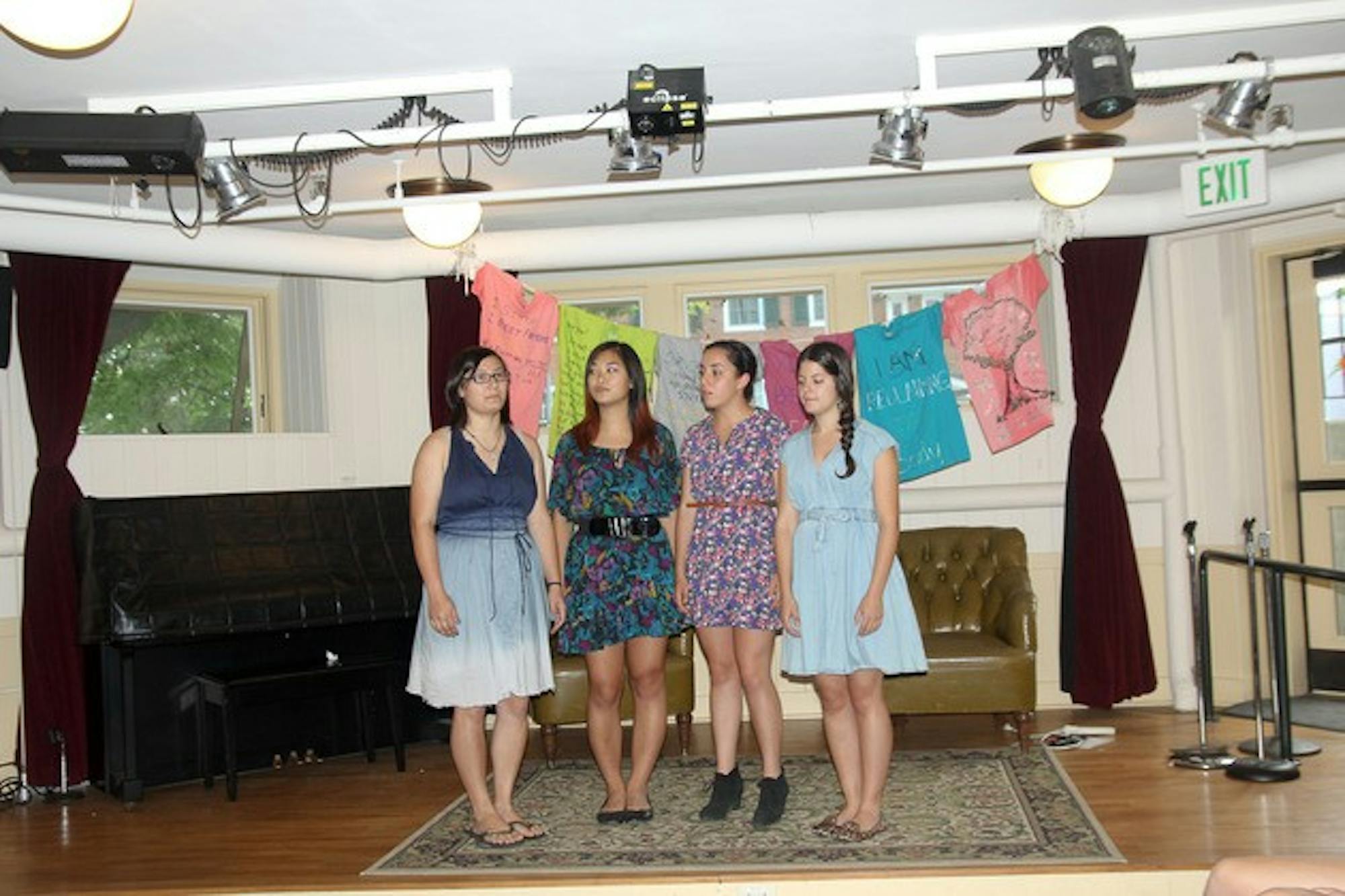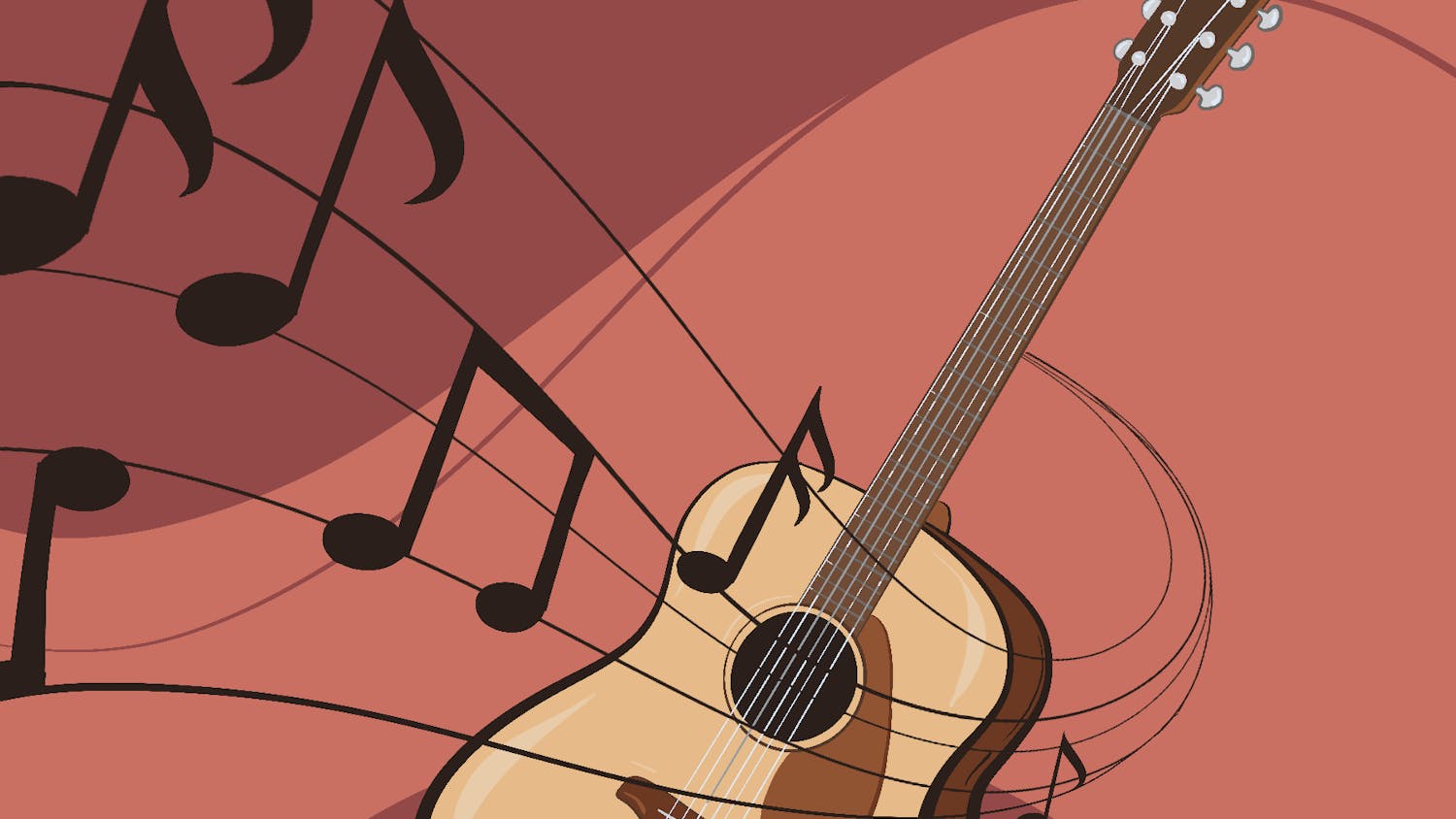This event marks the first time that the SAPA program has hosted an art show. The idea came from a desire to try a new form of raising awareness, SAPA Holli Weed '14 said. While many student-organized events on campus involve panels, for example, few involve artistic expression.
The art show also functioned as an outlet for survivors, providing them an opportunity to heal through artistic expression, according to SAPA Genevieve Mifflin '14.
SAPA coordinator Rebekah Carrow said that the event was designed to engage community members on an emotional level.
"At Dartmouth, folks really like to engage academically with issues," Carrow said. "But this issue exists beyond the theoretical aspect into people's lives."
The student artwork included shirts from the "Clothesline Project" that SAPA organizes each April, clay pieces about sexual assault made by students at Consent Day and miscellaneous artwork that pertains to sexual assault. The shirts, all decorated by former and current students, are decorated with messages such as "I'm here for you," and "You didn't win she wins every day she's here." Though many of these shirts have been displayed around campus previously, Monday's venue allowed students to get a closer look at the writing on the shirts, according to Carrow. Artwork included a wire structure that represented the growing strength of a survivor and the shrinking presence of the attacker, a drawing of two hands and a depiction of one survivor's healing process through sculpture.
Many of the artwork and pieces were untitled, as well as the event itself, because the organizers wanted to let artists define their own experiences, according to Weed.
"Someone mentioned the idea of keeping it untitled and we kind of latched onto it because we're taught that it's very important to let survivors label their own experiences," Weed said.
Carrow said that when the SAPAs had trouble creating a name for the event, it was indicative that the showcased art could not be encapsulated in one or two words.
Two female students, who asked to remain anonymous due to the sensitive nature of their experiences, presented original spoken word performances at the beginning of the show. One of the students presented a moving prose-poem about sexual abuse in Alaska. The piece included themes of color and the feeling of being quieted and trapped under a blanket.
"I am lifting the blanket, I am bringing light to the dark spaces," she read.
The second speaker read a shorter slam poetry piece and said she will continue writing "rape poems" until "men and women and everyone in between can listen." Her piece was written in fresh and witty prose and she described her experiences with sexual assault during a study abroad program and on campus.
The Soul Scribes and Rockapellas also performed pieces about sexual assault and empowerment. The SAPAs specifically asked the Rockapellas to perform because the group often sings about freedom.
Despite the heavy nature of the subject, many of the pieces were upbeat and positive because the organizers wanted to draw in more students and increase visibility of SAPA resources, Randolph said.
"It's relaxing and something campus can enjoy but also learn from," Randolph said.
Weed described the showcase as an event that could provide a "non-triggering" and "non-threatening" environment where students can be exposed to the issue of sexual assault. One Wheelock was more intimate for performers and attendees, which fostered a more comfortable environment, she said.
Though the event was poorly attended, SAPAs did not seem discouraged about the possibility of holding a similar event in the future.
"The first time is opening the door, and after that you generate an audience," Carrow said. She added that she hopes that the SAPA program continues to hold creative events like the art show in future years in order to continue campus dialogue.




